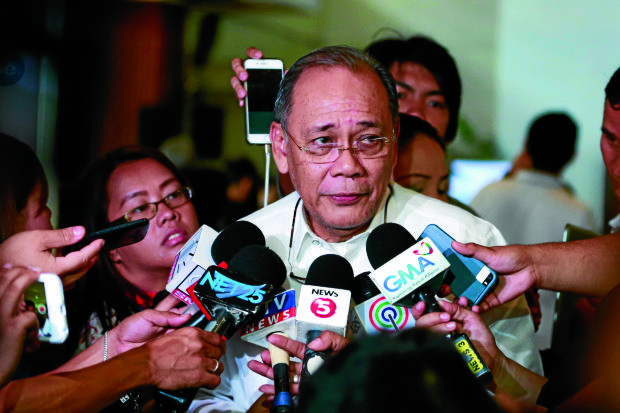Malacañang: View impunity in context of war vs crime, terrorism

Presidential Spokesperson Ernesto Abella. ALFRED FRIAS/Presidential Photo
Malacañang said on Saturday that a report ranking the Philippines highest in global impunity should be viewed against the backdrop of President Rodrigo Duterte’s decisive moves to deal with crime and terrorism where those involved had met his tough measures with violence.
The 2017 Global Impunity Index released this week by the University of the Americas Puebla and Udlap Jenkins Graduate School said the Philippines topped 69 countries studied for their record of impunity, where wrongdoers escape punishment or criminal liability.
“The Philippines is going through one of its most critical moments, due to the increase of violence related with organized crime and increased terrorist activities from local gangs linked to the Islamic State,” the report said.
Presidential spokesperson Ernesto Abella said the study had to be viewed in the proper context.
There were problems related to organized crime and terrorism under previous administrations, “but it is only under this administration that crime and terrorism are being decisively addressed,” he said.
Article continues after this advertisement“The true depth, breadth and magnitude of crime and terrorism, funded by illegal drugs, have only been recently uncovered; resistance from those adversely affected by the current government’s campaign against illegal drugs has been strong, and internal cleansing by organized crime have all had violent results,” he said.
Article continues after this advertisementThe impunity index was measured structurally by the capacity of a state to prosecute crimes and by its ability to deliver justice in accordance with due process and functionally by the performance of its institutions in charge of prosecuting crimes and delivering justice.
The human rights dimension was measured by how much effort a government exerts to protect its citizens’ physical integrity.
“High rates of impunity can lead to socioeconomic inequality, legal inequality, rule-of-law problems, insufficient economic development, difficulties to attract foreign investment and tourism, as well an increase in human rights violations,” the report said.
Abella acknowledged that the government must “strengthen the pillars of the criminal justice system, which include the community, law enforcement, prosecution, the courts and corrections.”